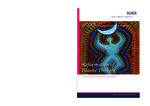Reformation of Islamic Thought
A Critical Historical Analysis
| dc.contributor.author | Wetenschappelijke Raad voor het Regeringsbeleid, | |
| dc.contributor.author | Zayd, Nasr Abû | |
| dc.date.accessioned | 2010-12-31 23:55:55 | |
| dc.date.accessioned | 2019-12-10 14:46:32 | |
| dc.date.accessioned | 2020-04-01T15:35:03Z | |
| dc.date.available | 2020-04-01T15:35:03Z | |
| dc.date.issued | 2006 | |
| dc.identifier | 340182 | |
| dc.identifier | OCN: 1166382419 | en_US |
| dc.identifier | 85765266 | en_US |
| dc.identifier.uri | http://library.oapen.org/handle/20.500.12657/35161 | |
| dc.description.abstract | Ever since the dramatic events of September 11, 2001 the fundamentalist and exclusivist trend prevails in most presentations of Islamic thinking. Indeed, these events have given extremists and fundamentalists a much more prominent position than they might ever have dreamt of. In Reformation of Islamic Thought, the prominent Egyptian scholar Nasr Abû Zayd examines the positive, liberal, and inclusive reaction embedded in the writings of Muslim thinkers. He takes the reader on a critical journey across the Muslim World, where Muslim thinkers from Egypt and Iran to Indonesia seek to divest Islam of traditionalistic and legalistic interpretation. Instead, these thinkers stress the value of a cultural, enlightened Islam, and an individualistic faith. For many, the dogmatic Islam established by the conservatives and supported by totalitarian political regimes is outdated; they want it replaced by a spiritual and ethical Islam. To what extent are these reformist thinkers engaged in a genuine renewal of Islamic thought? Do they succeed in escaping the traditionalist trap of presenting a purely negative image of the West? | |
| dc.language | English | |
| dc.relation.ispartofseries | WRR Verkenningen | |
| dc.subject.classification | thema EDItEUR::J Society and Social Sciences::JH Sociology and anthropology | en_US |
| dc.subject.classification | thema EDItEUR::J Society and Social Sciences::JP Politics and government | en_US |
| dc.subject.other | public administration | |
| dc.subject.other | sociology | |
| dc.subject.other | sociologie | |
| dc.subject.other | bestuurskunde | |
| dc.subject.other | politicologie | |
| dc.subject.other | political science | |
| dc.title | Reformation of Islamic Thought | |
| dc.title.alternative | A Critical Historical Analysis | |
| dc.type | book | |
| oapen.abstract.otherlanguage | Na de dramatische gebeurtenissen van 11 september 2001 zijn het vooral de fundamentalistische stromingen die de boventoon voeren in de meeste overzichten van het islamitisch denken. Extremisten en fundamentalisten hebben een veel prominentere plaats gekregen dan ze ooit hadden durven dromen. In Reformation of Islamic Thought onderzoekt de gerenommeerde Egyptische geleerde Nasr Abû Zayd de positieve, liberale en inclusieve bijdragen van moslimdenkers. Hij neemt de lezer mee op een kritische reis door de moslimwereld, waar moslimdenkers van Egypte en Iran tot Indonesië proberen de islam te ontdoen van traditionalistische en legalistische interpretaties. Daartegenover benadrukken ze de waarde van een culturele, verlichte Islam en een individualistisch geloof. Velen beschouwen de dogmatische islam van de conservatieven, die vaak wordt gesteund door totalitaire politieke regeringen, als volstrekt achterhaald; ze willen die interpretaties vervangen door een spirituele en ethische islam. In hoeverre zijn deze hervormingsgezinde denkers betrokken bij een daadwerkelijke vernieuwing van het islamitisch denken? Slagen ze erin te ontsnappen aan de traditionalistische valkuil van een uitsluitend negatief beeld van het Westen? | |
| oapen.identifier.doi | 10.5117/9789053568286 | |
| oapen.relation.isPublishedBy | dd3d1a33-0ac2-4cfe-a101-355ae1bd857a | |
| oapen.relation.isbn | 9789053568286 | |
| oapen.series.number | 10 | |
| oapen.pages | 256 | |
| oapen.identifier.ocn | 1166382419 | |
| oapen.identifier.ocn | 85765266 |

